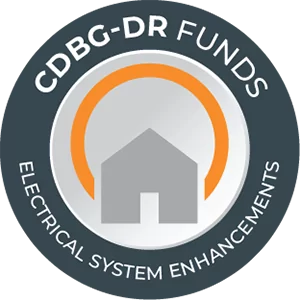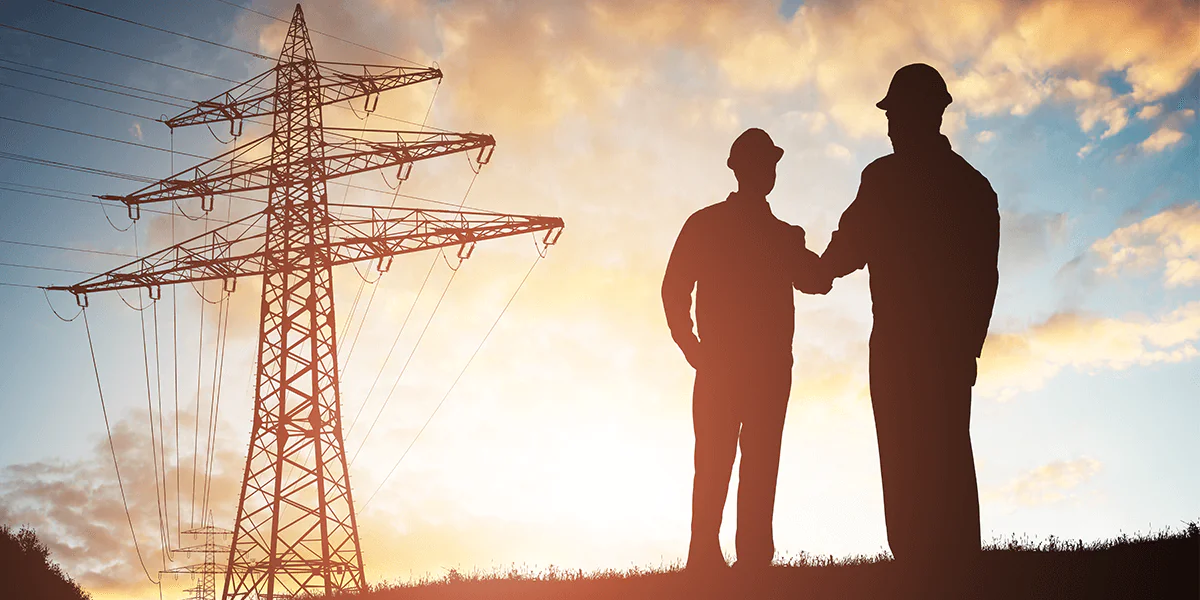
Electrical System
Enhancements
More than five years have passed since hurricanes Irma and María impacted Puerto Rico in September 2017. Due to the vulnerability of the electric power system, the impacts caused by both hurricanes remain ever present in the daily lives of the Island’s residents. Energy service interruptions are common and unpredictable, energy consumption costs continue to rise, and insufficient generation and faulty substations are common. In addition, Puerto Rico’s location within the Caribbean region puts it at severe risk to the consequences of climate change.
The hurricanes had a devastating impact on the electrical system and resulted in the longest sustained blackout in modern U.S. history. The prolonged disruption of electrical service prevented residents from accessing other essential services such as healthcare, communications, refrigeration, water, ventilation systems, air conditioning, and security. Due to a sustained systemic instability, residents continue to face many of the same challenges. Economic recovery has become difficult to achieve and the restoration cycle remains incomplete. Energy remains the single most comprehensive and critical factor to the future of the Island.
Current Challenges:

Electrical grid conditions

Increase in costs and pricing for construction materials

Shortage in skilled labor

Recovery efforts after María were entirely focused in restoring electrical service

To help address these challenges, the U.S. Department of Housing and Urban Development (HUD) has granted a special allocation under CDBG-DR funding (CDBG-DR Energy) for electrical power system enhancements and improvements for Puerto Rico. The allocation’s objective is to relieve the financial burden caused by the electrical power system’s recovery efforts and address the system’s reliability and resiliency needs.
In 2018, the Island received $9.7 billion in CDBG-DR Funding and in 2020, an additional allocation of $277 million to serve persisting needs. On June 22nd, 2021, HUD announced a funds assignment of $1.93 billion for the exclusive use of improving Puerto Rico’s electrical system.
These funds provide a unique and significant opportunity to carry out strategic and high-impact activities that:
- Address necessary electric power system recovery expenses;
- Mitigate the electric power system’s risk to future disasters;
- Improve the electric power system’s reliability, resiliency, efficiency, and sustainability; and
- Address the electric power system’s long-term financial viability.
The Puerto Rico Department of Housing (PRDOH), as the grantee of the CDBG-DR Energy funds, is responsible for administering these funds. As described in PRDOH’s CDBG-DR Electrical Power System Enhancements & Improvements Action Plan, the funds will be used for the implementation of two programs focused on supporting the Island’s electric power system’s improvements strategy:
On March 25th, 2022, HUD partially approved the Action Plan, allowing the Electrical Power Reliability and Resilience Program (ER2) to move forward with planning, design, and implementation.
Approach for the Use of Energy Resources
- Key Principles:
- Renewable Energy – Maximize the integration of renewable energy sources to reduce the impact of climate change and reliance on fossil fuel technologies.
- Distributed Energy Resources – Promote Distributed Energy Resources, like new power generation assets close to load centers and energy storage systems, for a decentralized and resilient electrical power grid.
- Vulnerable Populations and Services – Focus on addressing the most vulnerable populations and critical services
- Additional Considerations:
- Data Driven Approach – Utilization of data to guide Program design and implementation.
- Stakeholder Engagement – Engage with communities, groups, and other key stakeholders to promote stakeholder-informed decision-making.









